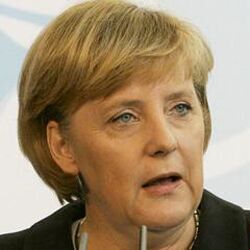
Germany’s Grand Coalition Shows Signs of Fracturing
Political infighting is threatening to tear apart Germany’s grand coalition between conservatives and Social Democrats.
Hoping to gain public approval and the cooperation of her grand coalition, German Chancellor Angela Merkel undertook reforming Germany’s controversial health-care system when she came to power last November. The bold project would either make or break her ability to lead the coalition government for the duration of her term.
Contrary to what she hoped for, the failing reform is breaking her.
A July 3 compromise on health-care funding—signed by Merkel, fellow coalition party leader Kurt Beck, and Edmund Stoiber, head of the ruling Christian Democrats’ Bavarian sister party, the Christian Social Union—returned to the drawing board after receiving major criticism from state premiers in Merkel’s own party.
Merkel’s retraction demonstrates her inability to reign in the 11 regional premiers, some of whom crave her position.
Members of her party have openly accused spd Health Minister Ulla Schmidt of deceitfully altering the July 3 compromise according to her party’s favor. Criticism of Schmidt was sparked when a draft leaked out by Schmidt earlier this month proposed reforms not covered in the July 3 compromise.
According to Stoiber, Schmidt’s draft in some areas “amounts to a complete deviation from the framework agreement.”
The failure to agree on the blueprint means another delay for a reform that was already put off half a year ago.
Although the political infighting has caused rumors of a break-up, German media analysts from all political sides agree that the lack of any viable alternative makes it unlikely to happen. Attempts by the spd and conservatives to ally with other parties have come up empty, as Germany’s varying political parties’ divergent interests make cooperation between any other combinations just as difficult. Even if a new coalition could be formed, it wouldn’t be a feasible alternative because there aren’t new elections for some time.
“The conservatives and spd have no alternative, and neither does the German people,” wrote center-left Süddeutsche Zeitung. “The tortuous theater will continue ….”
The conservative Frankfurter Allgemeine Zeitung wrote, “Because no alternative is in sight that would promise an improvement, the grand coalition is going to have to muddle through.”
However, business newspaper Handelsblatt gave a rather unique assessment of Germany’s political situation. The paper predicted that Merkel may face a coup by regional party barons.
The Trumpet has long forecasted the same outcome: that a regional party baron will gain control of the government in an undemocratic fashion. For a myriad of reasons, the Trumpet has been watching Edmund Stoiber to do this very thing.
Germans will not put up with a stagnant government muddling through reforms and policies indefinitely. Unless Germany solves its political woes, its ambition to unite Europe and increase European global leadership will be stalled. A strong man in Germany will at some point stand up and present Germans with a viable alternative that will launch their nation to global power status.
